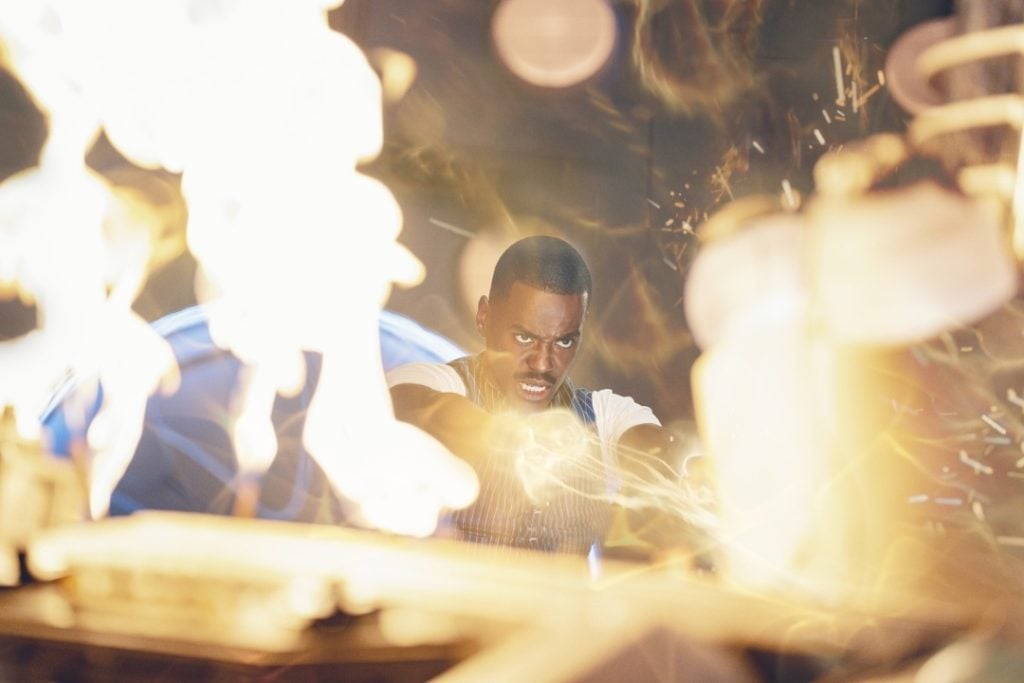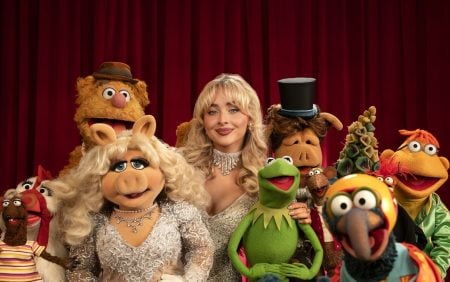The Doctor (Ncuti Gatwa) | Photo Credit: James Pardon/BBC Studios/Disney/Bad Wolf
Well, that sure was a mess of a finale. After eight weeks, the Doctor and Belinda’s journey back to May 24, 2025 ends in more of a whimper than a bang. Written by Russell T. Davies and directed by Alex Sanjiv Pillai, “Wish World” and “The Reality War” form a two-part finale that promises answers to lingering questions from across the Fifteenth Doctor’s era and satisfying conclusions to a string of character arcs. But instead, it’s a two-hour trainwreck from start to finish; an unsatisfying combination of strong premises, hollow nostalgia, and desperate ratings grabs that leaves a bad taste in your mouth and gives Ncuti Gatwa’s Fifteenth Doctor the worst send-off of any modern Doctor so far.
Note: major spoilers for “Wish World” and “The Reality War” follow.
A Wish Gone Wrong
After the explosive end of “The Interstellar Song Contest“, the Doctor (Ncuti Gatwa) and Belinda (Varada Sethu) wake up in their idyllic suburban home, their young daughter, Poppy (Sienna-Robyn Mavanga-Phipps) calling to them. But this isn’t the Earth Belinda’s been trying to return to. No, this is a world wished up by Conrad Clark (Jonah Hauer-King); a nuclear family-inspired callback to the heteronormative suburbs of yesteryear. It’s a world devoid of identity and self-expression. Except the Doctor’s doubt may literally crack the universe in two. Meanwhile, the Rani (Archi Panjabi) and Mrs. Flood hope to utilize all this doubt to free the First Time Lord, Omega, from his prison so they can create a new Gallifrey. Can the Doctor remember who he is and put a stop to the Unholy Trinity’s evil plans? Or is this the end of everything the Doctor and his friends have ever known?
“Wish World” and “The Reality War” offer a mixed bag of missed opportunities and hollow nostalgia. On the one hand, most of “Wish World” serves as a timely satire of dystopian societies that idolize a heteronormative past that never existed, complete with a knowing wink at the fragilities of such fantasies. On the other hand, you’ve got an endless list of self-indulgent callbacks to Doctor Who’s past that form the rest of the finale. It’s nostalgic nonsense that feels empty and devoid of any meaning. And the finale throws all of that goodwill generated by the first half of “Wish World” out the window in favor of hollow fan service that goes nowhere, says nothing, and does little. Based on this finale, Doctor Who feels like a show trapped in its own shadow, terrified to truly try something new—despite 62 years spent proving the value of constantly innovating.
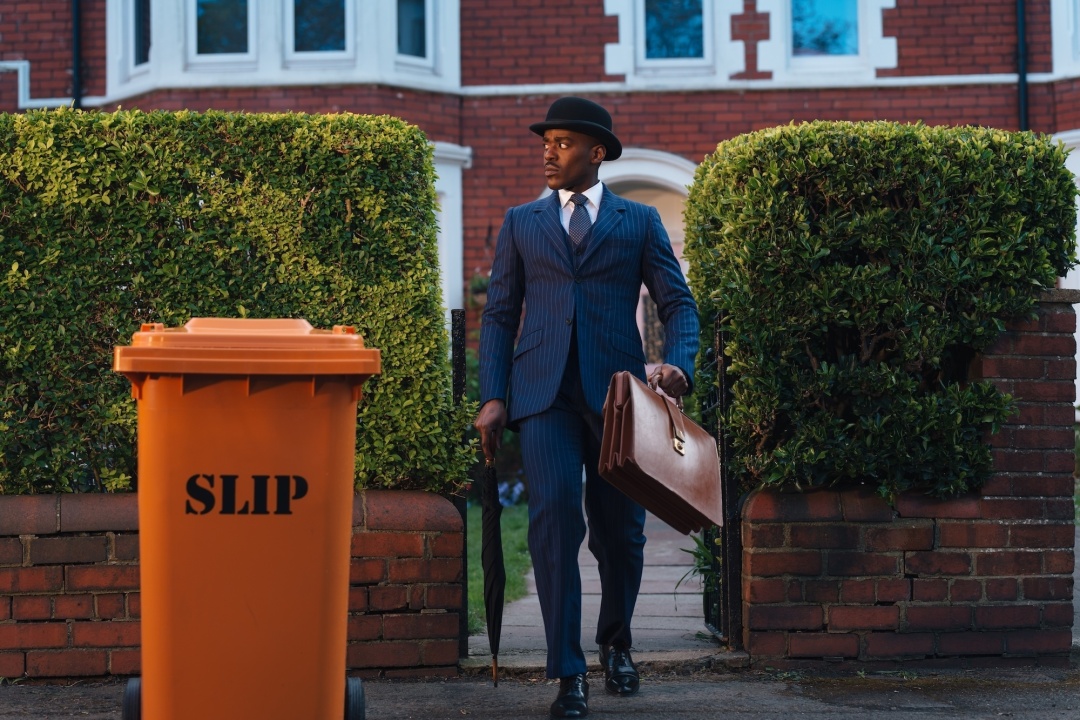
A Mixed Bag of Character Beats
The finale’s character beats make for a similarly mixed bag. The Doctor’s continued longing for a family takes center stage, a wish that’s finally granted to him with Belinda and Poppy in “Wish World”. But that joy gets cruelly taken away as the Doctor realizes his paradise is fake. Still, his endless longing leads him to quite literally give up his life in the sheer hopes of saving Poppy (who ends up being Belinda’s child in the real world); a true act of heroism in this mess of a story. Otherwise, it’s Millie Gibson’s Ruby who shines the brighest, as she’s the only person who seems to remember the world before Conrad’s wish took over. And it’s Ruby who defeats Conrad and remembers Poppy after she disappears from reality following that defeat In a way, she’s more crucial to the story than either Doctor or Belinda.
Which brings us to the biggest flawed character beat: Belinda Chandra feels like a former shell of herself. Gone is the Belinda who faced off against cartoon gods and unknowable horrors. Instead, she largely fades into the background as she hides away in a crate with Poppy and allows the Doctor to, later, go off on his own to save Poppy after the wish’s end erases her from existence. A disapponting turn of events for a character so strongly introduced eight weeks ago. It’s not that Belinda being a mother is a bad thing. It’s that she’s never once mentioned it in all of her time with the Doctor, despite the episode’s final minutes suggesting she’d done just that in scenes never previously shown. Instead of the season using Belinda’s daughter as a driving motivation, her existence feels tacked on in a way that ignores everything the show’s previously told us.
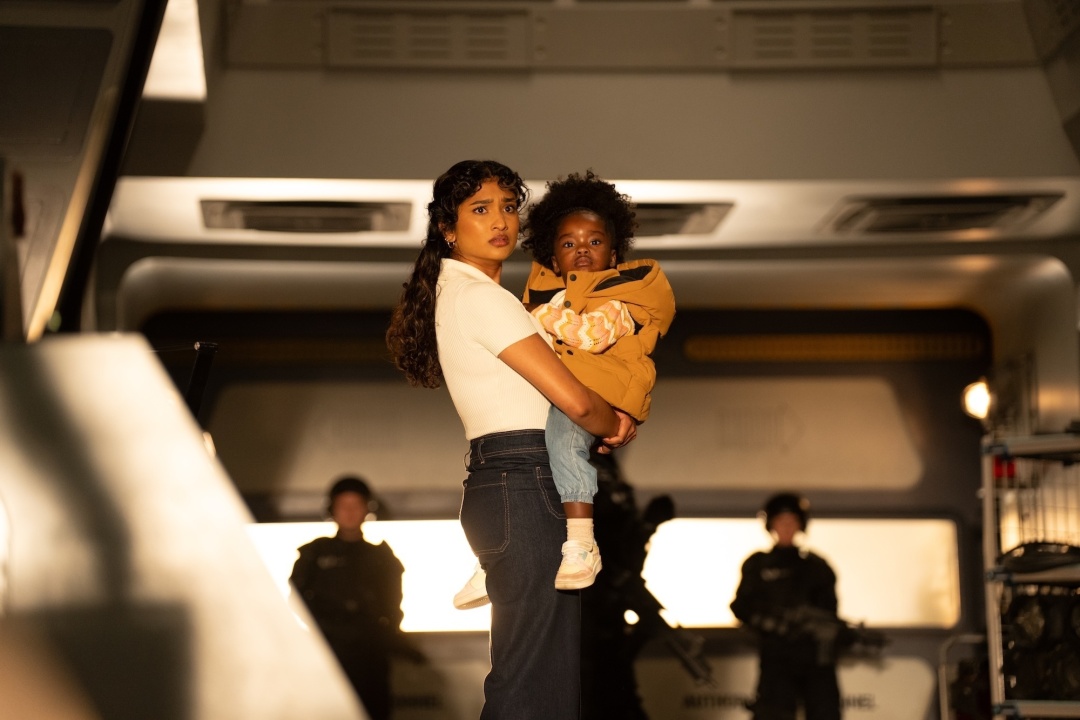
An Exercise in Hollow Nostalgia
The root of these problems is Doctor Who‘s current obsession with hollow nostalgia. Like several other legacy franchises, Doctor Who seems to think the mere existence of legacy characters offers a strong enough draw to entice fans into overlooking any narrative deficiencies. At least, that’s certainly how this finale feels because there’s just not a story here. You’ve got legacy Doctor Who villain, the Rani, trying to find legacy Doctor Who villain, Omega, so they can bring back legacy Doctor Who location, Gallifrey. But there’s no drama and no emotional connection. In fact, the Rani and Omega don’t even feel like themselves. Gatwa, Panjabi, and Dobson can try as hard as they like to sell their characters’ pasts—and they do try—but there’s just nothing there. So, what’s the point?
Without a cohesive narrative or a group of characters to emotionally invest in, what’s left to care about? A Wikipedia-style list of plot points and callbacks to past stories that were both more inventive and more enjoyable? No amount of mustache-twirling, scenery-chewing energy from Panjabi and Dobson can make up for the narrative’s fundamental disinterest in exploring anything about their characters as fully rounded people. Their existence is just fan service in chase of a story rather than an exciting, innovative story delighting in playing with fan-favorite characters from the past. Say what you will about Davies’ finales from his first tenure as showrunner but at least he knew then that if the character drama works, then the audience will forgive a wonky plot. But here, he chases solely after plot twists and cameos and winks at the expense of meaningful conclusions to the characters’ arcs, and it shows.
A Future Obsessed with its Past
All of this hollow nostalgia comes to a head in the final twenty minutes or so of “The Reality War”—an ending that feels as though it was changed months after the fact in a series of reshoots. Having defeated the Unholy Trinity, the Doctor, Belinda, and Poppy prepare to continue traveling. Except as Conrad’s wish fades away, so too does Poppy. But the Doctor vows to save her at any cost. But in doing so, he begins to regenerate. As far as regeneration-prompting events go, it’s ho-hum; somewhat emotionally satisfying, perhaps, but one that doesn’t feel remotely alluded to.
Aided by a surprise cameo from Jodie Whittaker’s Thirteenth Doctor, Gatwa’s Doctor begins the process of saying goodbye, complete with the speech we’ve all grown to expect. And despite the fact that Gatwa’s departure’s been kept a secret and the episode as a whole does a terrible job at even hinting at his departure, it’s a decent enough send off. Until the regeneration itself. Plagued by special effects that look barely finished (and significantly worse than those twenty years ago), Gatwa’s Fifteenth Doctor regenerates into…Billie Piper, last seen on Doctor Who as Rose Tyler, companion to Christopher Eccleston and David Tennant’s 9th and 10th Doctors.
And no disrespect to Piper, but for a show defined by its ability to move forward, two of the past three Doctors being David Tennant and Billie Piper both returning to the show feels hopelessly backward-looking. It’s all very “Somehow, Palpatine returned” of the show in the worst way possible. And with Doctor Who‘s future looking quite uncertain, it feels desperate in the most cynical of ways; a last-ditch attempt to goose the ratings and earn the show a third reprive. But if this is the cost, perhaps Doctor Who may indeed be due for another rest.
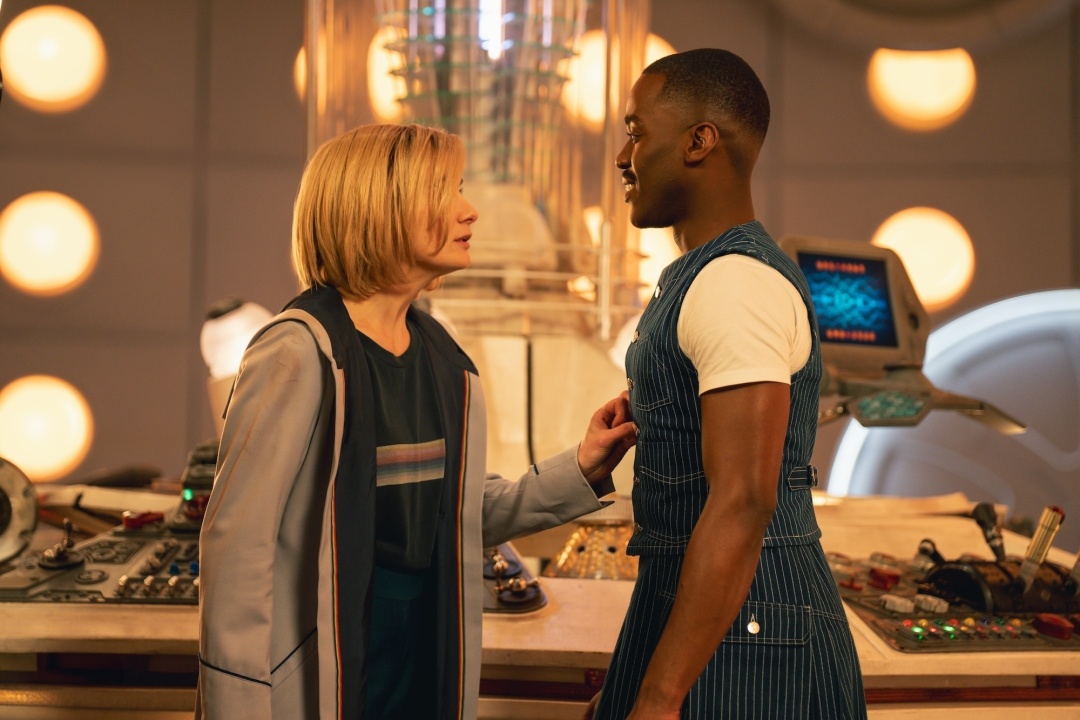
Final Thoughts
And with that, Doctor Who‘s second season comes to a whimper of an end. After a strong run of episodes, Doctor Who just couldn’t nail the landing. It’s as if the show decided midway through the finale to completely ignore everything that’s made the rest of the season so good and lean into its very worst habits. “Wish World” and “The Reality War” offer up an exercise in hollow nostalgia in search of a meaningful story. It’s a collection of things happening with no real connective tissue. A surprise regeneration episode in the worst possible way and, perhaps most damningly, a perfect example of why Doctor Who might just need a rest. Say what you will about the finales of seasons’ past but at least they tried to do something new, regardless of how well they accomplished it. But this finale? It’s a whole lot of disappointing nothing.
Doctor Who season two is available now on Disney+.
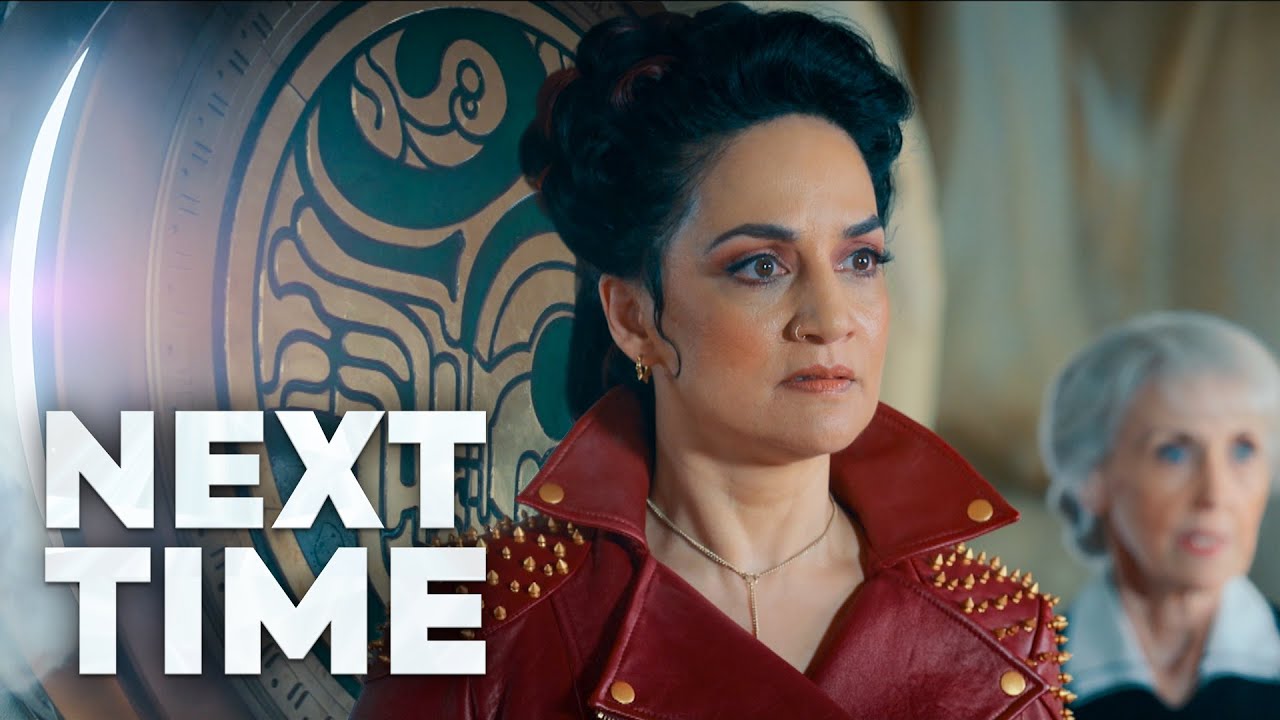
The second season of "Doctor Who" ends with more of a whimper than a bang. "Wish World" and "The Reality War" are a mess of a story; a smorgasbord of nostalgia-chasing callbacks in search of an emotional center. It's Doctor Who at its most creatively bankrupt, desperate for anything to give it a new shot of energy. But in the process, it's lost sight of the fact that the innovation and reinvention at the center of the show's identity has always been the driver of its success and not its slavish devotion to its past.
-
GVN Rating 5
-
User Ratings (1 Votes)
2.3


